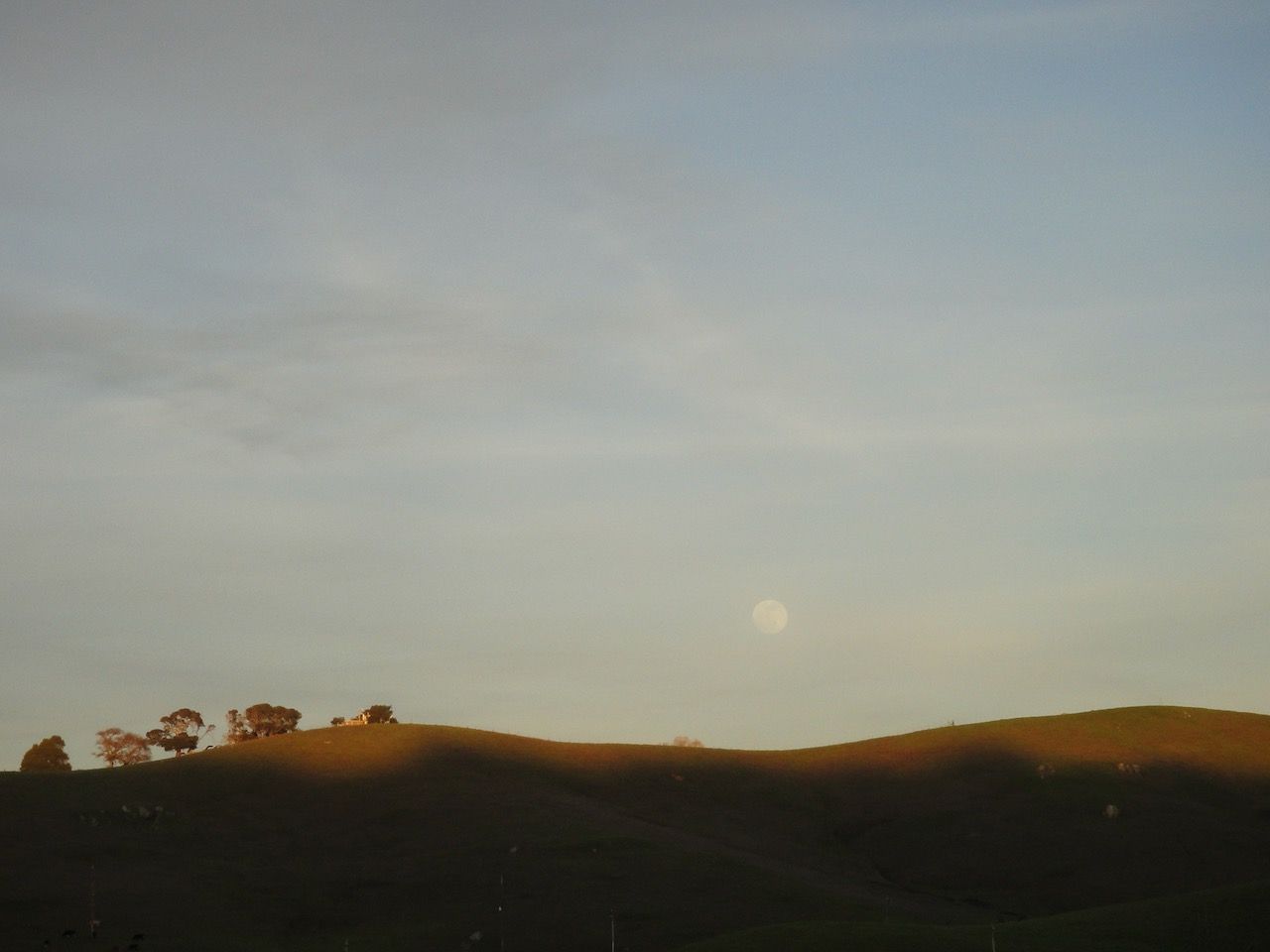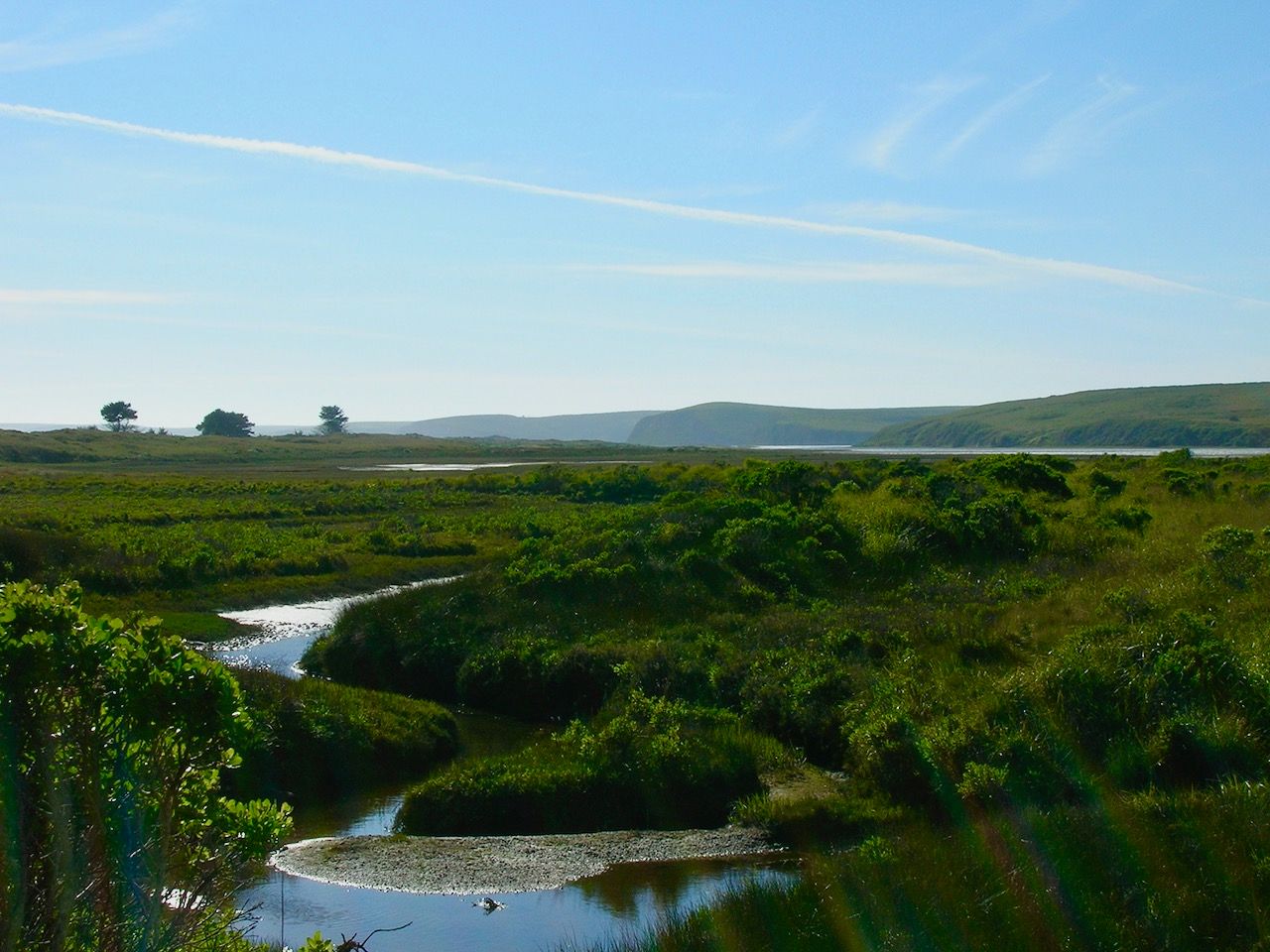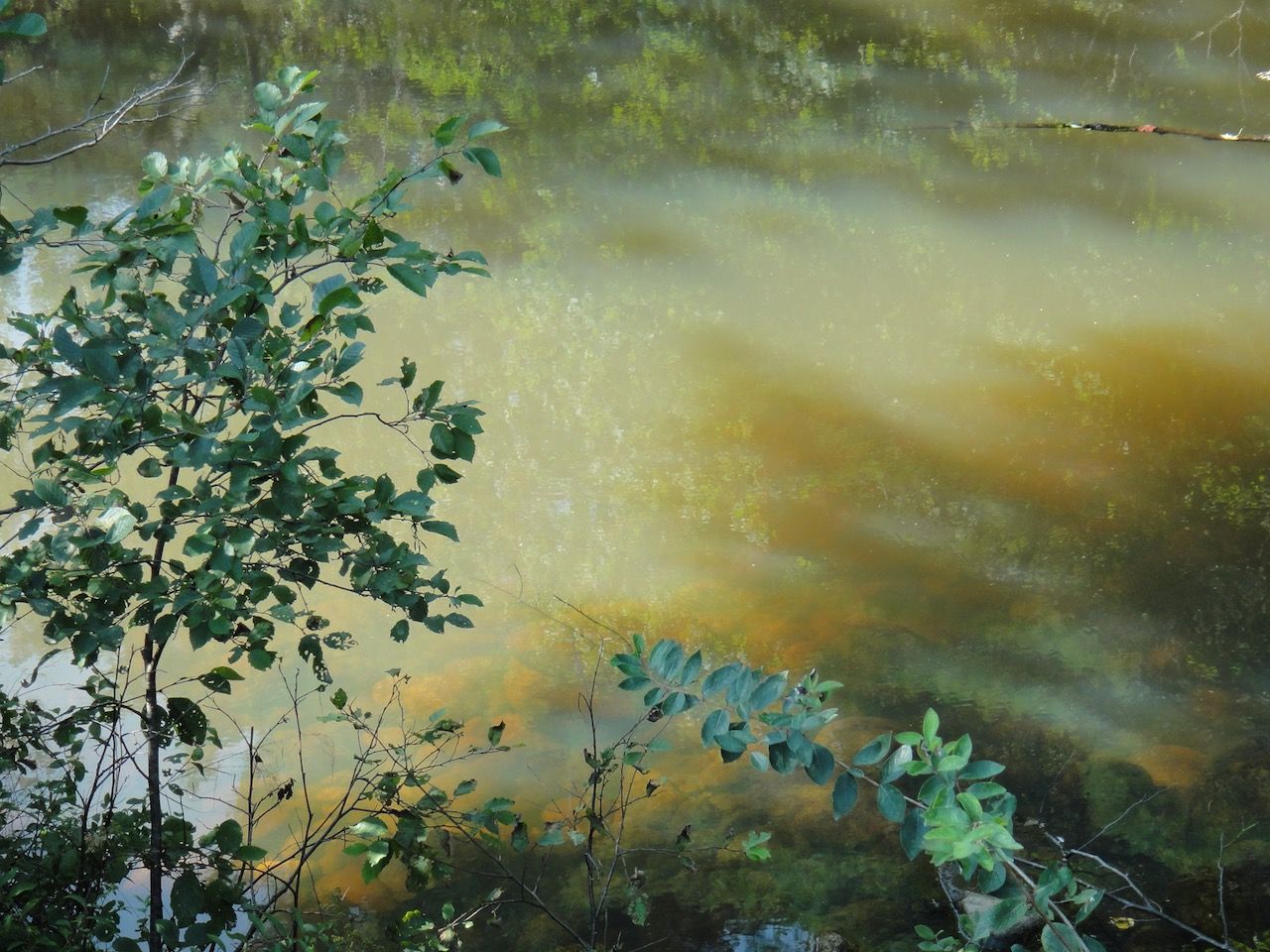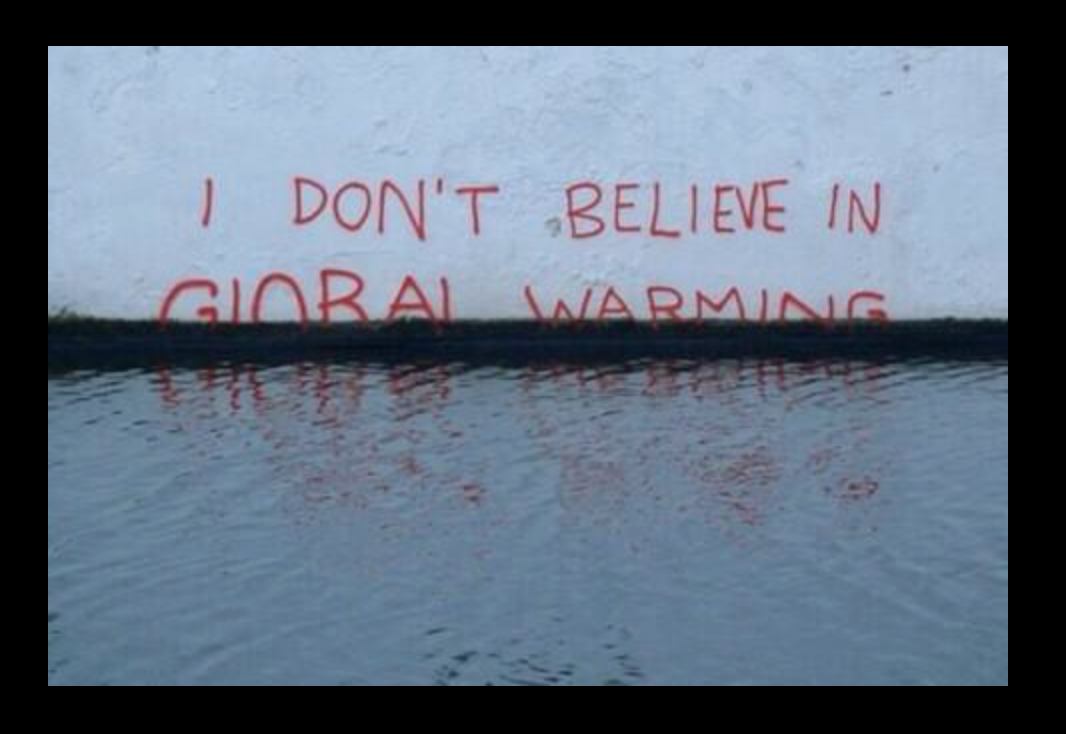Plex: 21 June 2023
Evolving Connected Human Intelligence (with AI?); SeaCHANGE with Beth Tener; GreenCheck; The Spiritual Lives of Scientists; NeoBook: Bioregions and Food Systems; Landscapes; On Questioning Core Beliefs

Happy Summer Solstice!
The Biweekly Plex Dispatch is an inter-community newspaper published by Collective Sense Commons on first and third Wednesdays of each month. Price per issue: 1 USD, or your choice of amount (even zero).
In This Issue
- Evolving Connected Human Intelligence (with AI?) (June 25)
- SeaCHANGE with Beth Tener (June 30)
- Please Test GreenCheck
- New Podcast: The Spiritual Lives of Scientists
- NeoBook: Bioregions and Food Systems
- Landscapes
- On Questioning Core Beliefs
Evolving Connected Human Intelligence (with AI?)
by Michael Lennon
Online Event, June 25
At the Complexity Adventures June Basecamp this Sunday, June 25, 4-7pm EDT
For all who attended the April unconference of Complexity Adventures (and friends from Plex, Prosocial.World, Earth Regenerators, Deep Transformation Network, For the Good of All NOW!, the Active Inference institute, and the Presencing Institute), we are resuming our conversations and proto-ventures this weekend at the upcoming monthly basecamp meeting.
Join us for the on-going conversation: https://coda.io/d/Complexity-Adventures-Atlas_dF3QBOZlR4p/Monthly-Basecamps_suBLu
More about the session:
Clusters of neurons grow into collectively smarter networks (“self-assembling brains”) which in turn can become meta-networks of connected wisdom.
Can principles for neurons evolving into smarter “connected learning clusters”–and fractally into meta-smarter networks of clusters–extend from human brains to human groups and larger collectives? Might neighborhoods, networks, or cities extend connected learning capacity to better co-regulate collective care of bioregions, watersheds, and planetary commons?
In this session, we will explore intriguing ideas and principles from information science and neurobiology for building self-assembling connected intelligence. We will also aim to identify promising opportunities for “extending the collective learning edges of our own self-organizing intelligence” (a.k.a “connected consciousness”).
SeaCHANGE with Beth Tener
by John Abbe
Online Event, June 30
Free registration: Beth Tener: Unlocking community potential (Eventbrite)
The guest for this month’s Real World Co-Intelligence call is Beth Tener, of New Directions Collaborative and Kinship Hub. Ms. Tener has consulted to hundreds of organizations and networks on collaboration and systemic change. This call on June 30th, from 10am-noon Pacific time, will focus on Beth’s work as co-designer and co-host of the SeaCHANGE conference - Reshaping Tomorrow through Creativity & Community. Last year was the first time this distinctive and highly participatory conference was offered, to explore how communities can work with the arts for healing and social change and amplify the work of BIPOC artists.
Beth will share her learning from last year’s conference, and her thoughts on planning this year’s upcoming conference, which will be taking place in August. For more information–including a video from last year’s conference–and to register for the call, see: https://www.eventbrite.com/e/beth-tener-unlocking-community-potential-tickets-652615790397
CII's monthly Real World Co-Intelligence calls offer a participatory learning community format. They are also recorded so we can share our learnings with others. In each call, we include a section where we offer some explicit connections between the practice we are exploring, and the patterns and principles of co-intelligence and wise democracy. These calls are offered as a gift from the Co-Intelligence Institute. If you feel moved to support our work financially you can do so here: https://www.co-intelligence.institute/donate
If you’d like to find out about future Real World Co-intelligence Community Learning Calls, please subscribe to the Co-Intelligence Institute newsletter here: https://www.co-intelligence.institute/subscribe.
Please Test GreenCheck
by Brad DeGraf, Charles Blass, Collaborative Technology Alliance
GreenCheck is a simple, cooperative approach to trust, identity, and community. It is a by-invitation mutual validation network, to be formalized as a network cooperative. GreenCheck is an initiative of NAO.is in collaboration with the Collaborative Technology Alliance, JLinc, and others.
GreenCheck makes it easy for each of us to assert proof of personhood (uniqueness in the GreenCheck registry), and to validate each other’s assertions (aka three-friend authentication).
That uniqueness solves a lot of problems and makes important things like People Discovery, Networks of Trust, and Portable Communities possible.
It's at a good MVP plateau, so please try out GreenCheck. Claim as many accounts as you can (Linkedin, Twitter, Github, Mastodon, Youtube, ...). Then find someone to Praise and do so. Also Validate others you know who have claimed at least two accounts.
Check out the Timeline to see latest activity including your own.
There are some short videos that will help speed things up. Also a couple of known issues.
Medium term plan is to integrate with Federated Authentication Network to map your GC node that has been validated to a DID that can then be used as your presence in Portable Communities.
Please comment in the Please Test GreenCheck Hylo thread if you can, or email Charles Blass with any critiques, questions, bugs.

New Podcast: The Spiritual Lives of Scientists
by Michael Lennon
The Spiritual Lives of Scientists was the subtitle of the 2023 Book of the Year from Nautilus Publishing. The author, Dr. Paul Mills, recently launched an accompanying podcast, where Plex subscriber and contributor Michael Lennon was among the first interviewees.
The discussion ranged from techniques for catalyzing collective cognition, to Demystifying Complexity, and different ways for interrogating Mystery within and beyond Science.
NeoBook: Bioregions and Food Systems
by Peter Kaminski
The project formerly known as SenseDoing and Marley has a new name, “NeoBook". The NeoBook project is still focused in the short time on creating a first neobook on bioregions and food systems, and will expand after that.
One of the drafts of the work by Klaus Mager is being adapted as a Sunday school play for lower elementary school-age kids and other members of a church in Kansas. The subject of the book, caring for the Earth, fits into their Sunday school curriculum. The adaptation is a great confirmatory example of the repurposability of the components of a Neobook.
NeoBook calls are on Mondays. For more information and discussion about NeoBooks or the topic of bioregions and food systems, visit the NeoBook channel on CSC Mattermost.
Landscapes
by Ken Homer




On Questioning Core Beliefs
by Ken Homer

An excerpt from “The Systems View of Life” by Fritjof Capra:
Maturana emphasizes that the phenomenon of language does not occur in the brain but in a continual flow of coordinations of behavior. As humans, we exist in language and we continually weave the linguistic web in which we are embedded. We coordinate our behavior in language, and together in language we bring forth our world. “The world everyone sees,” write Maturana and Varela (1987, p. 245), “is not the world but a world, which we bring forth with others.” [emphasis added] This human world centrally includes our inner world of abstract thought, concepts, beliefs, mental images, intentions, and self-awareness. In a human conversation, our concepts and ideas, emotions, and body movements become tightly linked in a complex choreography of behavioral coordination.
To change our world, we need to change our worldview. To change our worldview, we need to become aware that we have a worldview and that our worldview only discloses the limits of our world, not the world. Cultivating such awareness is the work of developmental psychology. Being able to look at the socially constructed lenses into which we are inculcated by our family-upbringing-culture instead of through those lenses is no mean feat because it requires questioning our core beliefs. And core beliefs are closely tied to identity.
Over the years, I’d had to modify many beliefs. Most recently, my beliefs about the brain and emotions have been considerably rearranged as I’ve been reading Lisa Feldman Barrett’s marvelous: How Emotions Are Made: The Secret Life of the Brain. I’ve also had to abandon some beliefs. My belief in the omnipotent god of my early years has long since fallen by the wayside. And, thanks to recent exposure to some systems of thought and experience that fall outside my worldview, I am slowly becoming aware of how my mind has been colonized by the culture in which I grew up and the extremely limited ways of seeing the world that has engendered. Decolonizing your mind is rewarding but it’s not for the faint of heart!
As humans, we tend to become so identified with our beliefs that anyone or anything that questions them is seen as a threat. Beliefs are the psyche’s Achilles’ Heel. When we hold strong beliefs, we think we see “‘The World’ as it truly is.” But sooner or later, someone or something comes along and reveals that our beliefs don’t accurately reflect the larger reality in which we live. What we do when we bump up against the limits of our worldview may well be the determining factor between life and death and this seems especially true at the level of big collective belief structures such as the millions of people who put their faith in the neoliberal economic valuing of our biosphere.
If our strongly held beliefs prevent us from considering evidence that is contrary to those beliefs, how can we hope to learn? And what do we do if large segments of the population continue to stick to their beliefs even when mountain ranges of evidence pile up indicating that their beliefs need modifying?
“Everyone takes the limits of their own field of vision for the limits of the world.” ~Schopenhauer
There’s a saying among scientists, that, “When it comes to evolution, learning is mandatory and survival is optional.” I remind myself often that 99.99% of all the species that have ever existed are now extinct. While not comforting, I find this reminder both sobering and inspiring. I want to do whatever I can to see that humans get the chance to be around for at least as long as the dinosaurs – who with brains the size of walnuts – walked the Earth for some 150 million years. Surely homo sapiens sapiens, with our giant brains can figure out how to best the dinosaurs record for existence! How many businesses, governments, or communities think in evolutionary timeframes? What might shift in our collective thinking and behavior if more of us made the attempt to imagine life 10,000, 100,000, 1,000,000, or even 1,000,000,000 years from now?
There are schools of thought that say the boundaries between the worlds of the dead, the living, and the unborn are permeable. The Celtics (not the ones from Boston) say that what is ailing in this world can only be healed by a connection to the other world. What understandings might pass through these diaphanous membranes when we allow ourselves to entertain the notion that past, present, and future are capable of shaping each other? What if granting legitimacy to these mystical ideas, if only as useful imaginal realms that can inform us in practical ways, is a key to our long-term viability? Personally, I like to stretch my mind out into deep time as a regular practice. I recognize that I am a bridge between my ancestors and my descendants and as I draw ever closer to becoming an ancestor more and more of my thinking turns to how can I be of service in The Great Transition or The Great Turning that is now underway.
With the above in mind, I’d like to pose the following set of questions for your reflection and input:
How strongly do you cling to what you identify as true?
Or slightly rephrased, how much questioning about your worldview can you sit with before you become uncomfortable?
What happens to your listening when you become uncomfortable?
What, if anything, do you do to counteract your discomfort and stay focused on your listening and increase your ability to tolerate information that disconfirms your beliefs?
How much questioning of your worldview can you sit with before you become defensive?
What happens to your listening when you become defensive?
What happens in your body when you become defensive?
What emotions do you experience? How do those emotions manifest? How do they affect your thinking and your behavior? In what direction do those emotions move the conversation?
What happens/what do you do when you feel the urge to counterattack, disrupt, or challenge whomever questions your assumptions?
Does acting in that manner help or hinder the situation? How do you feel afterwards? How do the other(s) in the conversation feel and respond to your moves?
What could you do differently that might bring about a more satisfying outcome for everyone concerned?
Who and what can support you when someone questions things you hold dear and then requests you to provide evidence for the claims you make? How can you rise to that challenge with intelligence, grace, and dignity?
What arises for you when you read these questions? What else would you add to the above list?
Thank you for reading! The next edition will be published on 5 July 2023. Email Pete with suggested submissions.
Grateful appreciation and many thanks to John Abbe, Charles Blass, Brad DeGraf, Ken Homer, and Michael Lennon for their kind contributions to this issue.